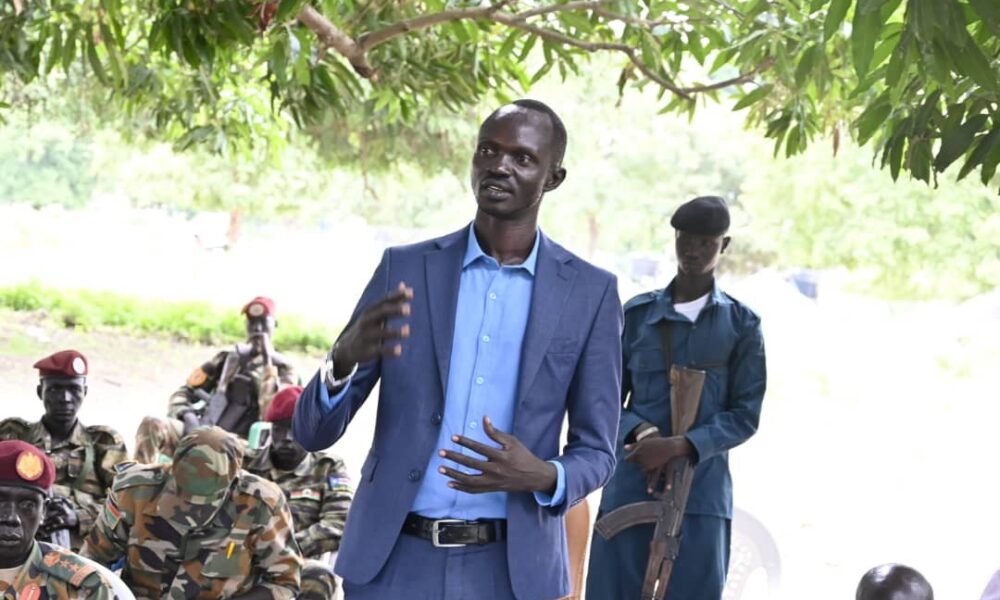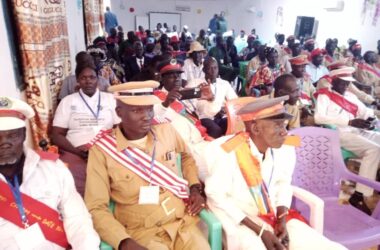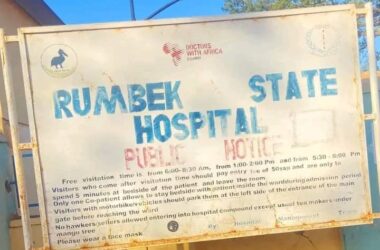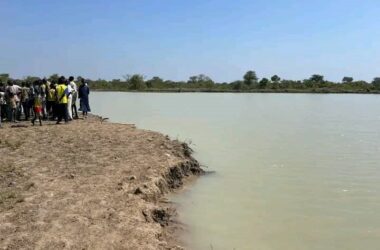By Yang Ater Yang
Rumbek East County Commissioner, Mangar Machuol, has convened a meeting with local chiefs, administrators, and cattle keepers to prepare for an impending flood that threatens to displace residents.
During the meeting, Commissioner Machuol emphasized the urgency of proactive measures to protect farms and facilitate the relocation of residents to higher ground.
“Many areas, including Paloc Payam and parts of Atiaba, are already submerged,” he noted. “This is a concern for everyone, and I urge Payam administrators and community leaders to collaborate on strategies to address this situation.”
Machuol highlighted the need for a coordinated approach to manage the movement of cattle keepers, particularly as high ground is typically sought after by both farmers and cattle.
“We must develop a strategy to ensure that cattle keepers can safely relocate their herds while protecting crops from damage,” he explained.
The Commissioner also acknowledged the initiative taken by community leaders to form a committee aimed at constructing dykes to help mitigate flooding in swampy areas.
“They are preparing the necessary tools to begin this project, which will help reduce water levels and protect our towns,” he said.
Addressing infrastructure concerns, Machuol pointed out that recent road construction has inadvertently blocked water passages, exacerbating flooding.
He mentioned ongoing discussions with road subcontractors and the African Resource Company (ARC) to implement culverts that will facilitate water flow to the northern part of the county.
In light of the challenges posed by flooding, Machuol expressed the need for regulatory measures to protect cultivated land.
“We have cultivated significant areas in high ground, but if cattle keepers allow their herds to roam freely, it jeopardizes our crops,” he warned.
The Commissioner announced plans to engage with communities in neighboring counties, starting with Wulu County, to foster cooperation among cattle keepers.
“We will work together to ensure that cattle are managed responsibly and do not damage farms,” he said.
He also highlighted the importance of local youth involvement in cattle management, urging them to take responsibility for their herds.
“If a person allows their cattle to graze on someone else’s farm, there will be consequences. However, current penalties are insufficient and need to be revised,” he stated.
Currently, the fine for allowing cattle to graze on crops is 1,000 South Sudanese pounds, which Machuol described as ineffective.
“With flooding imminent, we must prepare ourselves and raise awareness among community members and cattle keepers. We should not wait for humanitarian assistance; we have the capacity to support ourselves,” he said.
“If we work together to build dykes and protect our crops, we can sustain ourselves even in the face of flooding,” he asserted.
Sultan Taban Malual stated that there is a need to protect the agriculture sector saying it would benefit all eight Payams in Rumbek East County.
He expressed optimism about the county’s agricultural prospects, noting the vast lands cultivated this year.
“Protecting these crops from cattle is essential,” he remarked, underscoring the need for collaboration with neighboring counties to establish regulations that can guide cattle keepers.
Majok Malou, a leader from Gelwong, added that peace and reconciliation efforts between the Atuot and Agar communities are progressing well, highlighting the importance of dialogue for maintaining harmony.
As preparations continue, the community remains focused on mitigating the impact of potential flooding while fostering cooperation among residents and cattle keepers.




